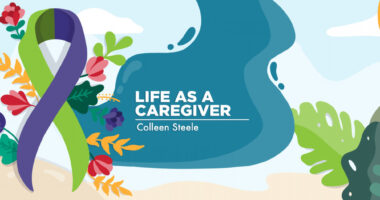Navigating the struggle of food insecurity with a rare disease
We shouldn't have to choose between medicine and groceries

I recently joined a rare disease advocacy meeting on Zoom, where the subject of the rising cost of living and the difficulty of affording groceries and prescriptions and medical care sparked a lively discussion.
During the call, eight people said they rely on food assistance from their state or county, while two said they’d applied for government assistance, but were denied because their income was too high. One family expressed gratitude for their church’s food pantry, while two other participants said they were getting by, but it was challenging.
Deciding between buying food and medicine is a harsh reality for many in the rare disease community. As someone managing pulmonary hypertension (PH), I have faced moments where I thought I might have to make that difficult choice. Skipping doses of life-sustaining medications is not an option, so it’s important to have reliable resources that enable everyone to have food security.
A host of resources
The U.S. Department of Agriculture offers several nutritional programs, such as the Supplemental Nutrition Assistance Program, or SNAP, for low-income families, and the Senior Farmers Market Nutrition Program for low-income seniors. The government’s Special Supplemental Nutrition Program and Farmers Market Nutrition Program focus on safeguarding the health of women, infants, and children.
Also, local community organizations and churches often offer food boxes to help individuals and families. Knowing our next meal is secure can alleviate stress and help us focus on other aspects of our health.
Shopping and stocking
Digital coupons may be available through apps for the stores where you shop. Gone are the days of clipping coupons from newspapers, but spending a few minutes on a mobile device or computer before heading to the store can shave a lot off of a grocery bill. Every dollar counts!
One way to stretch those dollars is to shop at stores where the prices are lower, like Aldi. I purchased a 10-pound bag of potatoes and two small hams before Thanksgiving and only spent about $40. Another place I shop is Sprouts. On Wednesdays, they offer double sale days. This means two weeks’ worth of sale items are available. I especially love it when they offer “buy one, get one” deals!
It can also help to plan a weekly menu, keeping in mind what’s already in the pantry and freezer, and looking at what each store has on sale the day you plan to shop. This approach helps ensure there’s enough food for the week and reduces the stress of last-minute meal decisions. While unforeseen health issues can disrupt plans, meal planning generally helps keep things organized and efficient.
Buying fresh ingredients and cooking meals at home can be more nutritious and affordable than eating out. For me, making a big pot of fresh soup is an enjoyable way to use the fresh vegetables in the refrigerator.
It’s also a good idea to keep nonperishable items like dried or canned beans, canned low-sodium vegetables, canned tuna or other meats, pasta, low-sodium soups, and old-fashioned oats in the pantry. These items are easy to prepare and can be lifesavers if you’re in a tight spot.
It can feel especially overwhelming to rely on disability funds — an issue faced by too many people in the rare disease community. But utilizing some of these resources can help make those precious dollars go further and alleviate the stress of food insecurity.
Always remember that you’re not alone. Together, we can support one another through these challenging times.
Have you ever struggled to buy groceries after spending most of your money on prescriptions and medical care? Do you utilize any of the resources mentioned above? If not, do you know of other resources that could be helpful? Please share your thoughts in the comments.
Note: Pulmonary Hypertension News is strictly a news and information website about the disease. It does not provide medical advice, diagnosis, or treatment. This content is not intended to be a substitute for professional medical advice, diagnosis, or treatment. Always seek the advice of your physician or other qualified health provider with any questions you may have regarding a medical condition. Never disregard professional medical advice or delay in seeking it because of something you have read on this website. The opinions expressed in this column are not those of Pulmonary Hypertension News or its parent company, Bionews, and are intended to spark discussion about issues pertaining to pulmonary hypertension.








Elaine Jones
Yes, I routinely use the food pantries in my area. In my area here in Illinois it seems as though they've gotten a lot better after the pandemic. They are now partnering with large manufacturers and local growers and we are getting a nice supply of produce and products. It's really sad the low levels the government has in order for you to qualify for SNAP or other programs that were mentioned because I'm on disability and yet I don't qualify. It's almost though like they are punishing people because they went out and made something out of themselves and worked a halfway decent job but then when you go on the disability you get like less than half of your income. It's utterly amazing! The same applies to other things for people that are on disability such as in Illinois getting a reduced sticker for your car, if you're over just a very small income like the amount of money someone would make in McDonald's then you have to pay full price. What can we do?!
Jen Cueva
Hi Elaine, I know it's unfortunate that someone on disability is not considered "poor enough" to help with these government assistance programs. It is so frustrating and sad!I hope that they can work on fixing this issue so many qualify for food assistance. The best thing I think we can do it contact our local officials and share our concerns and our story. We should not need to decide between medications and eating!
Thankful that you have found local pantries that can offer you the much needed help and assess to food.
I appreciate you taking the time to read my column and leave your thoughts. It means the world to me. I've missed seeing you in the PH News forums. Please pop in and give us an update when you can.
Take care my PHriend!
AuntLizzie
I am lucky to not have food or medication insecurity problems. Nonetheless, I find every two-weekly shop costs me more and more for just the basics, so I economise wherever possible. This often means buying large quantities of something that is on special that day. I then make big pans of vegetable soup and similar, and freeze meal size portions for later use. This also allows me not to have to worry about what to cook on days when I'm not feeling so good. Community Food Banks are a wonderful thing for those who desperately need them.
Jen Cueva
Hi Aunt Lizzie, I'm grateful to hear you don't have this worry. That should make your life a little less stressful. Planning ahead and buying in bulk is great if you can and have space. I can do that with somethings but since we downsized to our condo, not much extra space.
But yes, I relate to everything costing us more every time I go out to shop. I, too like to catch deals when I can.
You sound like my late grandmother and aunts. They too, have rooms full of canned foods and also freezers stocked. My mom did some but since my late stepfather passed away and my grandmother, my mom isn't doing the canning, etc.But, those veggies and things they canned and froze were always welcomed with open arms at my house.
Yes, the local community food banks seem to be the most help for those on disability and who don't qualify for government assistance.
Thanks for taking the time to read my column , I'm grateful that you were also inclined to leave your thoughts and suggestions on this important but increasing concern in our communities.
Take care, my Phriend. I hope to see you in the PH News forums soon.
Jen Cueva
Aunt Lizzie, oh how I miss the canned and frozen foods my late grandma and aunts would do. It was always welcomed with open arms at my house. Certainly these foods help stretch a meal when needed.
I love all types of vegetable soups. Would you mind sharing your recipe to the link in the forums below about soups? Freezing portions is something I do with chili, pasta sauce, and soups and stews, too. They come in handy when we aren't up to cooking.
Favorite soups?
Hope to see you in the forums soon. Take care, my PHriend!
AuntLizzie
Sorry - I forgot to mention. I also have a cupboard full of dried goods for emergencies. My cousins and I used to call this our "Atomic War Supplies". We grew up during the Cold War so were expecting something nasty to happen any day. But not now, eh? Eat healthy and stay well all my PHriends. xx